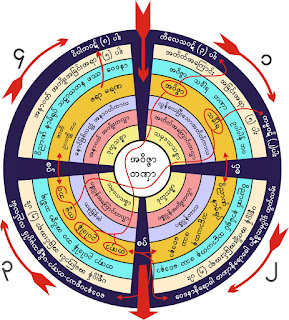IT Project Manager
An IT Project Manager is responsible for planning, executing, and closing projects while ensuring they are completed on time, within scope, and within budget. Below are the key responsibilities and tasks an IT Project Manager should focus on:
1. Planning the Project
• Define Goals and Objectives:
• Understand the business objectives and align the project goals.
• Ensure the project aligns with the organization’s strategic priorities.
• Create a Project Plan:
• Define scope, deliverables, milestones, and timelines.
• Identify dependencies and potential risks.
• Budgeting:
• Estimate costs and allocate resources effectively.
• Monitor and manage budget constraints.
• Stakeholder Engagement:
• Identify stakeholders and establish communication channels.
• Obtain stakeholder buy-in on the project scope and timeline.
2. Leading the Project
• Team Management:
• Assemble and lead a skilled team.
• Delegate responsibilities and tasks effectively.
• Foster collaboration and resolve conflicts.
• Communication:
• Regularly update stakeholders on project progress.
• Facilitate effective communication between technical teams and non-technical stakeholders.
• Risk Management:
• Identify potential risks early and develop mitigation strategies.
• Monitor risks throughout the project lifecycle.
3. Executing the Project
• Task Coordination:
• Ensure tasks are assigned, tracked, and completed on time.
• Remove roadblocks to keep the team productive.
• Quality Assurance:
• Monitor deliverables to ensure they meet quality standards.
• Implement testing and validation processes.
• Change Management:
• Address scope changes while managing their impact on time, cost, and resources.
4. Monitoring and Controlling
• Track Progress:
• Use project management tools (e.g., Jira, Trello, Asana) to track progress.
• Compare actual progress to planned milestones.
• Report Performance:
• Provide clear, actionable updates to stakeholders.
• Highlight any deviations from the plan and propose solutions.
• Resource Optimization:
• Ensure efficient use of resources, including staff, tools, and time.
5. Closing the Project
• Project Handover:
• Ensure deliverables are handed over to the relevant parties (e.g., operations or support teams).
• Document project outcomes and lessons learned.
• Evaluate Success:
• Measure the project’s success against its original objectives.
• Conduct post-project reviews with stakeholders.
• Celebrate Achievements:
• Acknowledge team contributions and celebrate success to boost morale.
6. Key Skills for Success
• Technical Knowledge:
• Understand IT systems, software development, cloud computing, or cybersecurity, depending on the project domain.
• Leadership and Communication:
• Inspire and guide the team while maintaining open communication with stakeholders.
• Problem-Solving and Adaptability:
• Tackle unexpected challenges and adjust to changing circumstances.
• Time and Budget Management:
• Ensure the project stays on schedule and within budget.
By effectively managing these aspects, an IT Project Manager ensures the project is delivered successfully, meeting both business needs and technical requirements.


